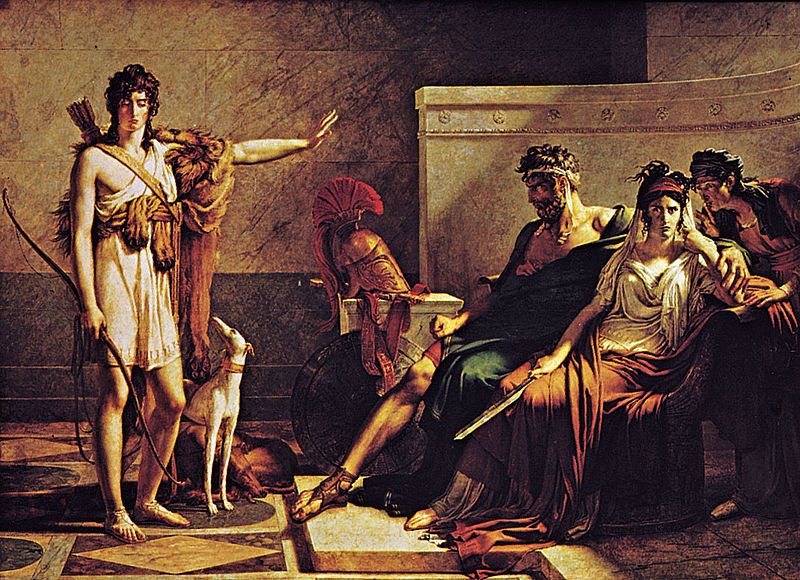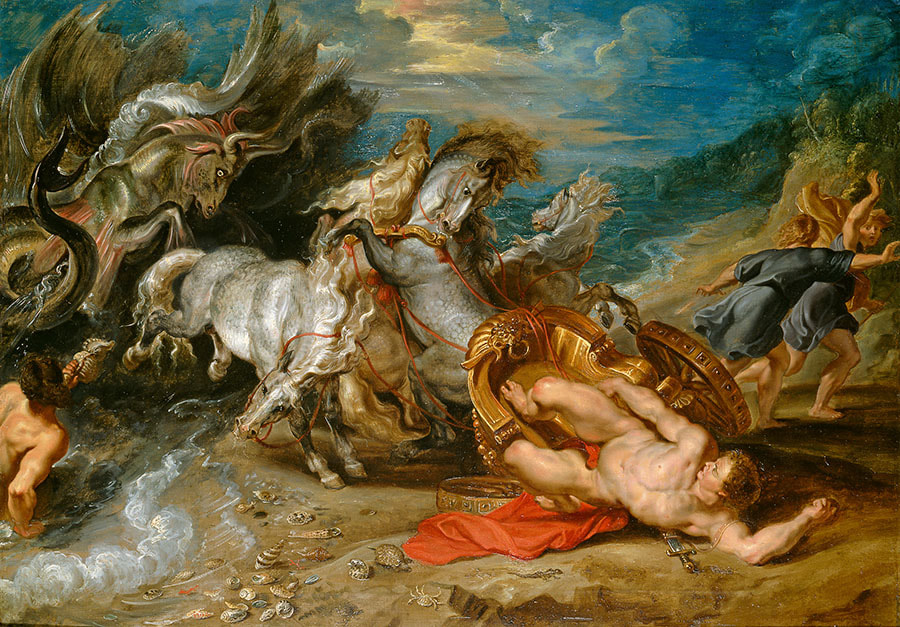Phaedra and Hippolytus
Phaedra and Hippolytus - Pierre-Narcisse Guérin (1774–1833) - Musée du Louvre
Date: 1802
Medium: Oil on canvas
Dimensions: 33.0 x 46.0 cm
Medium: Oil on canvas
Dimensions: 33.0 x 46.0 cm
|
Painted in 1802 by Pierre-Narcisse Guérin, Phaedra and Hippolytus is an oil on canvas work depicting an event spoken of in Greek mythology.
Hippolytus was the son of Theseus, but Theseus would find a new wife for himself in the form of Phaedra, daughter of King Minos. Phaedra would be cursed by Aphrodite to fall in love with her own stepdaughter, but Hippolytus would reject the advances of Phaedra. Phaedra would then accuse Hippolytus of trying to rape her, a story believed by Theseus, and a lie that would bring about the death of Hippolytus. More information about Hippolytus can be found here - (website opens in new window) Pierre-Narcisse Guérin |
|
Born: 13 March, 1774; Paris
Died: 16 July, 1833: Rome
Nationality: French
Art Movement: Neoclassicism
Painting School: French Academy
Died: 16 July, 1833: Rome
Nationality: French
Art Movement: Neoclassicism
Painting School: French Academy

